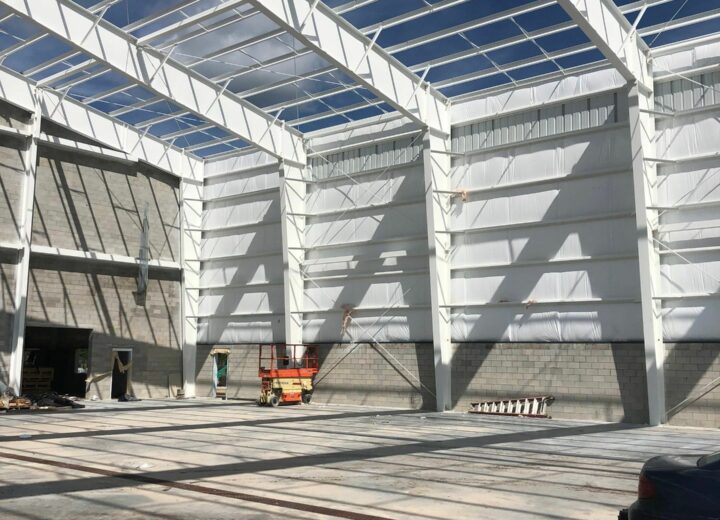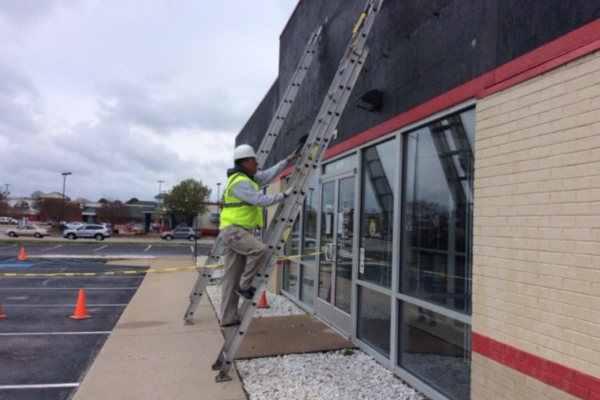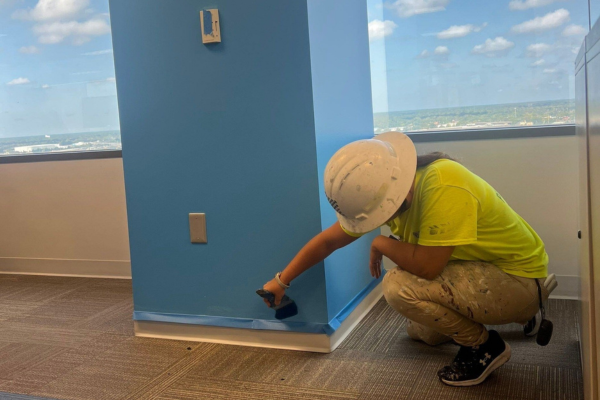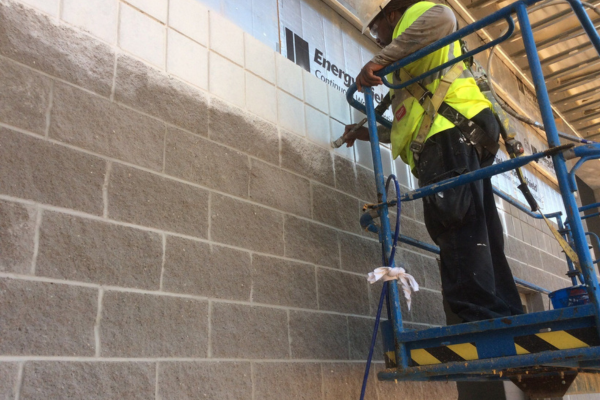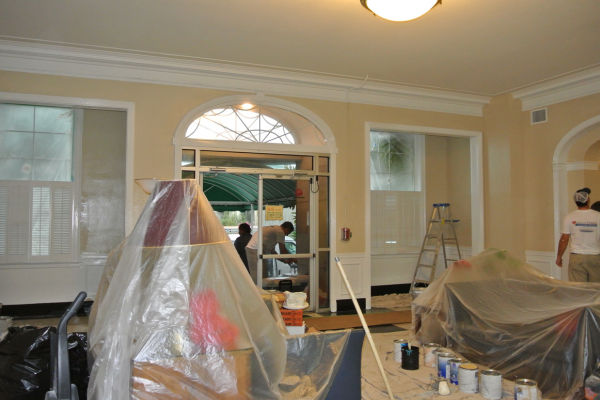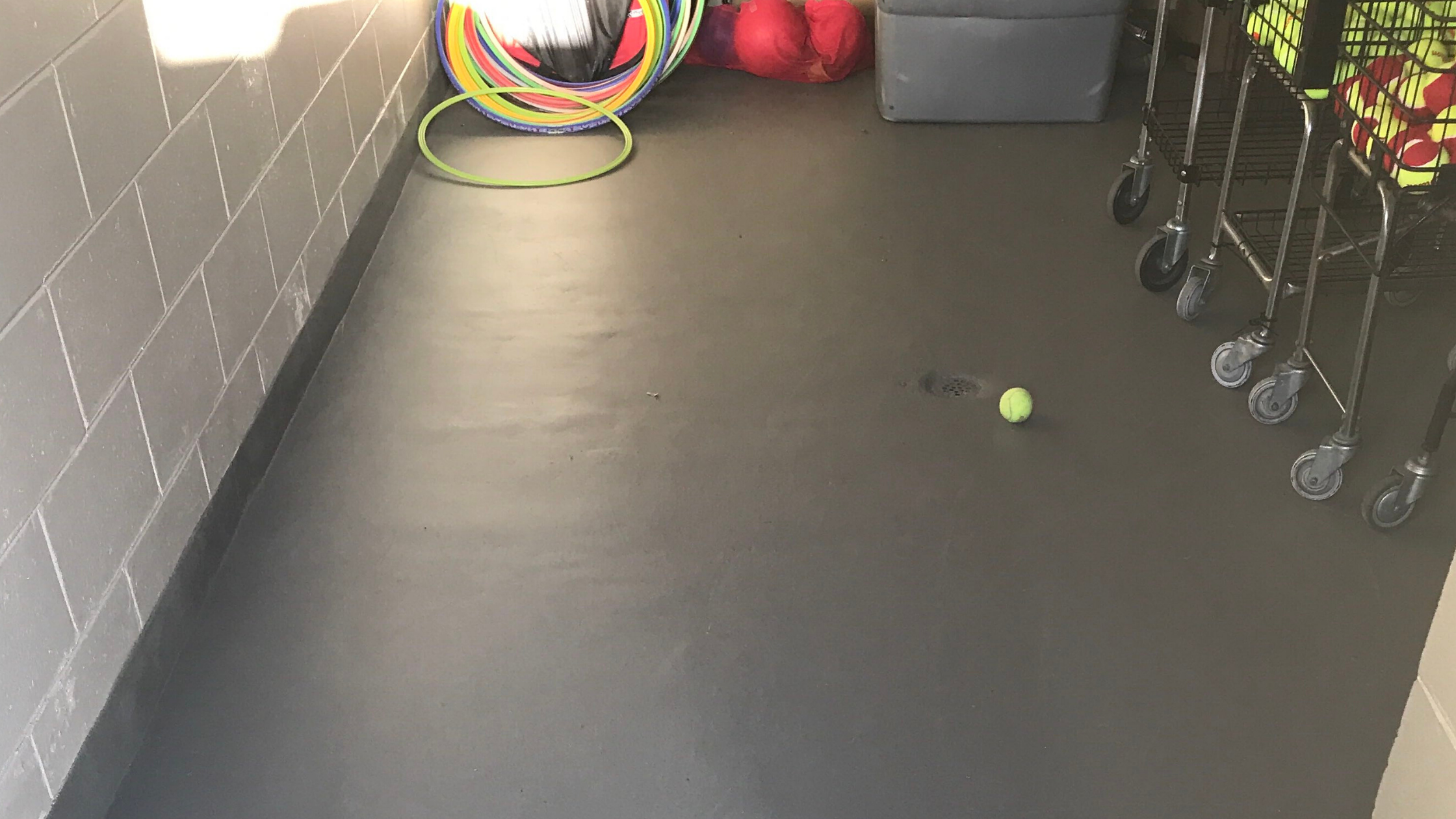 Choosing the right flooring system makes a substantial difference in how your facility performs.
Choosing the right flooring system makes a substantial difference in how your facility performs.
Your floor must resist abrasion from foot and vehicle traffic, have enough compressive strength to stand up to the equipment you use, and offer grip qualities that match your needs. Flooring also helps you with other environmental challenges, such as saving on energy use and making your space safer.
Most industrial flooring falls into one of three categories:
-
Concrete (including treated concrete)
-
Epoxy
-
Urethane or polyurethane
Let’s take a closer look at industrial flooring products:
Concrete Flooring: A Reliable Stand-By
A standard concrete floor can have industrial coatings applied directly or it can be polished. Polishing has the effect of sealing and protecting the surface. One of the biggest drawbacks of concrete is how its porous nature can result in efflorescence and dusting, problems addressed by polishing.
Concrete is extremely durable and long-lasting. With an appropriate sealant and regular maintenance, it may last a lifetime. Still, it is important to monitor the floor for cracks and other issues. Moisture intrusion and salt attack can wreak havoc on an untreated concrete floor.
Concrete has long been loved for its extremely low maintenance. Oil and other surface contaminants can easily be washed away. In environments requiring hazardous chemicals, the right drainage system combined with a concrete floor can significantly enhance workplace safety.
Although concrete is not usually chosen for its appearance, it can easily be dyed or tinted. It is also compatible with a wide range of specialty coatings: Waterproofing, antimicrobial coatings, and more.
Since many commercial and industrial properties already include a concrete subfloor, the installation of a complete concrete system is environmentally friendly. Other flooring material can be removed and the existing concrete slab updated with appropriate sealant and other coatings.
Epoxy Flooring: A Trusted Upgrade
Epoxy flooring begins with the appropriate preparation of an existing concrete floor. Then, a precise mix of hardening chemicals and resin is applied. Epoxy is irreversibly hardened from a liquid or soft solid into a hard and durable material with great strength and longevity.
As epoxy cures, its chemical properties enhance the endurance of the floor. Epoxy is often used to extend the service life of a concrete slab nearing replacement sooner than desired. The epoxy layer can effectively extend concrete’s life by years despite being only fractions of inches thick.
Like treated concrete, epoxy flooring is easy to clean and maintain. Dust is not a factor as it is with untreated concrete. Salt, as from road clearing, does not adhere to epoxy. It can be tidied up effectively with a mop, broom, or vacuum, or power washed without risk of damage.
When appearance is a concern, epoxy may be preferred because it comes in many colors. It covers defects in the floor and improves reflectivity, delivering better ambient lighting and a welcoming look.
Whereas concrete floors can be vulnerable to chipping and cracks, epoxy flooring is highly resistant to damage. That includes chemicals and heat. The heat limit of standard epoxy is around 150 degrees, but high heat varieties exist. Epoxy nearly triples concrete strength to about 10,000 pounds per square inch.
Urethane and Polyurethane Flooring: Premium Options
Polyurethane is similar to epoxy flooring in that it is a hard-wearing resin flooring system. It is ideal for settings characterized by frequent physical impact, point loading, and heavy equipment traffic. Where polyurethane stands out is in much denser molecular bonds created during the curing process.
Although polyurethane represents a greater upfront investment than epoxy, it can be cost-effective in the long run. Appropriate maintenance can give it an operational lifespan, double that of epoxy. It also has greater resistance to organic acids, alkalis, and solvents, which may be needed in some industries.
With a softer and more elastic composition than epoxy, polyurethane has better scratch resistance and is a good choice for multi-deck car parks that must endure foot traffic as well as vehicles. Thermal shock resistance is also higher for polyurethane flooring than epoxy.
It is important to remember that, when evaluating floor coatings, the terms urethane and polyurethane are used interchangeably. Polyurethanes polymerize with other carbamate chemicals to protect floors from moisture, bacteria, and chemicals. Multiple groups of urethane units are chemically linked in a polyurethane compound, making either term acceptable to refer to the family of flooring products.
Wondering Whether to Treat Your Existing Floor or Replace It?
If you are worried about deterioration in your current concrete floor, it is a good idea to have it evaluated by experts. Refinishing and recoating the floor may protect it for years to come. When this is not an option, epoxy flooring is far more cost-effective than investing in all-new concrete. On the other hand, polyurethane is appropriate for the most high intensity applications as a facility’s budget allows.

